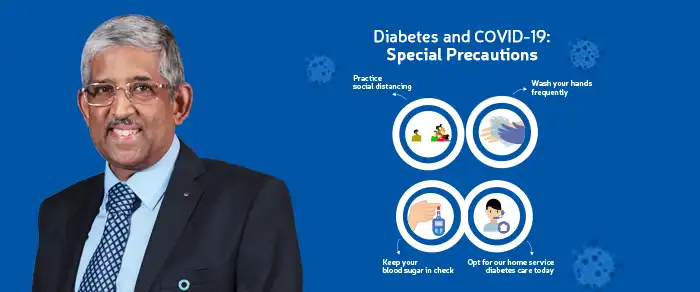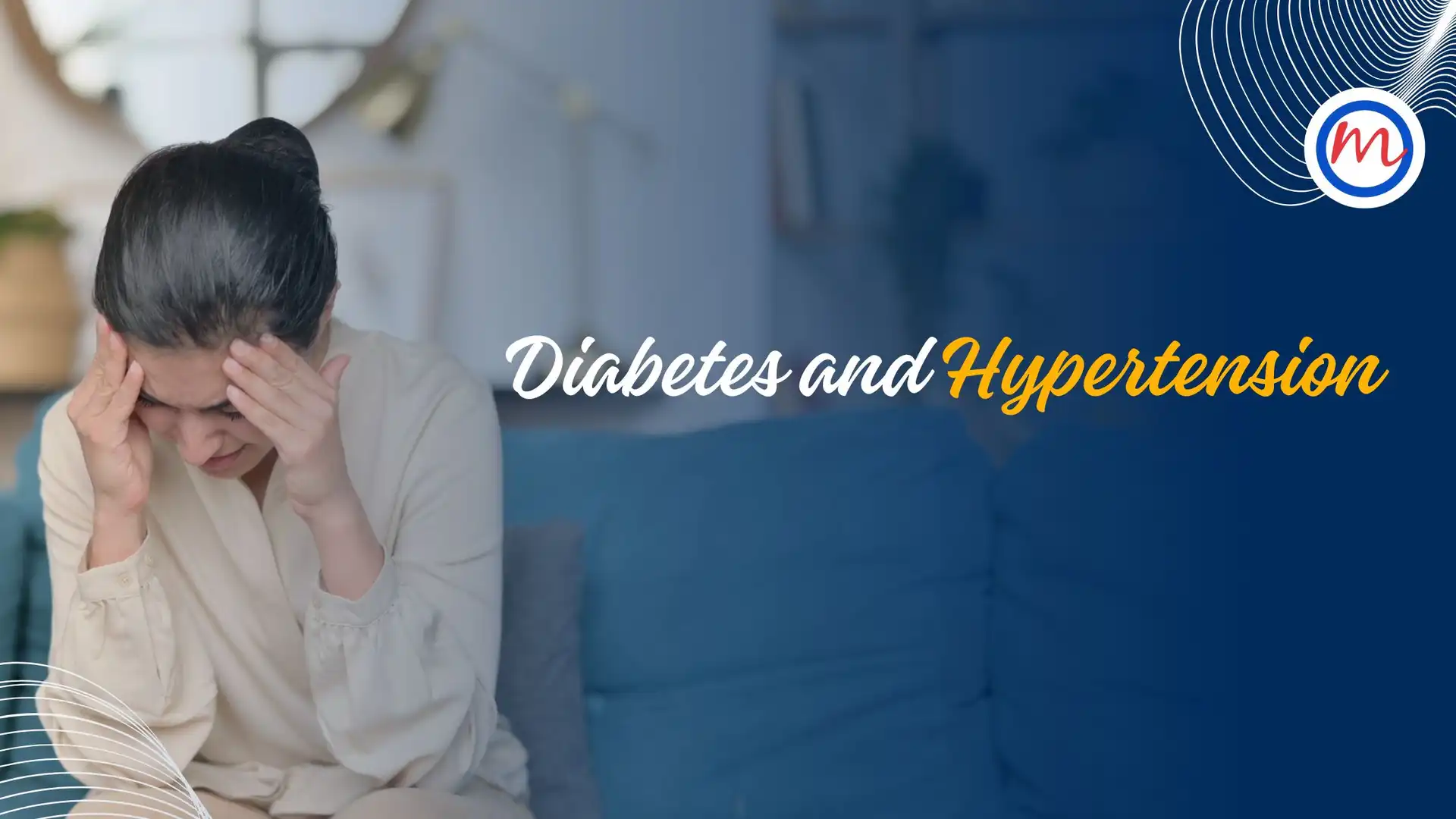
DR.V. MOHAN,
Chairman
Dr. Mohan’s Diabetes Specialities Centre, Chennai, India
Email : drmohans@diabetes.ind.in,
Websites : www.mdrf.in&www.drmohans.com
Youtubelink :www.youtube.com/drvmohan
During the present scare due to COVID-19 infection, many people with diabetes have been contacting us asking whether they are more prone to COVID-19 than others. So how do COVID-19 and diabetes go hand in hand? It is true that people with diabetes are prone to all infections. There is some emerging data to suggest that people with diabetes are also more prone to COVID-19. Moreover, even among those with infections like COVID-19, which leads to pneumonia, the chances of a secondary bacterial infection complicating the viral pneumonia exists. Hence, people with diabetes should take particular precautions with respect to COVID-19, as they are already in a slightly immunocompromised state.
What can be done to prevent COVID-19 infection?
As with everyone else, it is important to maintain good hygiene, particularly with respect to frequent washing of hands with soap and water and also with a sanitizer, if necessary, especially in a health care setting. If you know someone has a cough, cold or fever, it is better to avoid contact with them. The spread of the virus is known to be through droplet infection. Hence, if somebody with COVID-19 coughs or sneezes, you are likely to catch the infection. It is not necessary to wear a mask unless you already have an infection. However, if you have the infection you should wear a mask to prevent infecting others. A combination of COVID-19 and diabetes comes with severe complications and must be avoided at all costs.
What special precaution should people with diabetes take?
- It is important to keep your blood sugar under good control. Any infection is likely to increase the blood sugar levels and uncontrolled diabetes can further worsen the infection.
- More frequent testing of blood glucose levels with a Glucometer or Continuous Glucose Monitoring may be necessary.
- If the blood sugar levels are found to increase very much, please consult your doctor and bring your sugar under good control as quickly as possible.
- Unless you have type 1 diabetes or severe insulin-requiring type 2 diabetes, where the sugar levels tend to go very high and signs of ketosis or diabetic ketoacidosis (DKA) develop, it is not necessary to get admitted into the hospital.
- Follow all the usual precautions like washing your hands with soap and water regularly and ‘social distancing’ i.e. keeping a distance from people who are likely to be infected.
- Although spreading of the infection through a needle used for blood glucose testing or insulin injections is highly unlikely, it is better not to share your blood testing lancet or insulin needles with anybody else.
In summary, everyone should be aware of COVID-19 and diabetes and avoid coming in contact with an infected person and thus prevent developing the infection. Protect your diabetic family members and advise them to stay at home. If by chance you have already developed the infection, please see that you keep yourself isolated and don’t infect other family members or people whom you may be in contact with. A patient with COVID-19 and diabetes requires extra care and attention. Most importantly keep your diabetes under control and seek medical attention as soon as possible.



